Word Problems Worksheets for Ages 3-5 - Page 5
107 filtered results
-
From - To
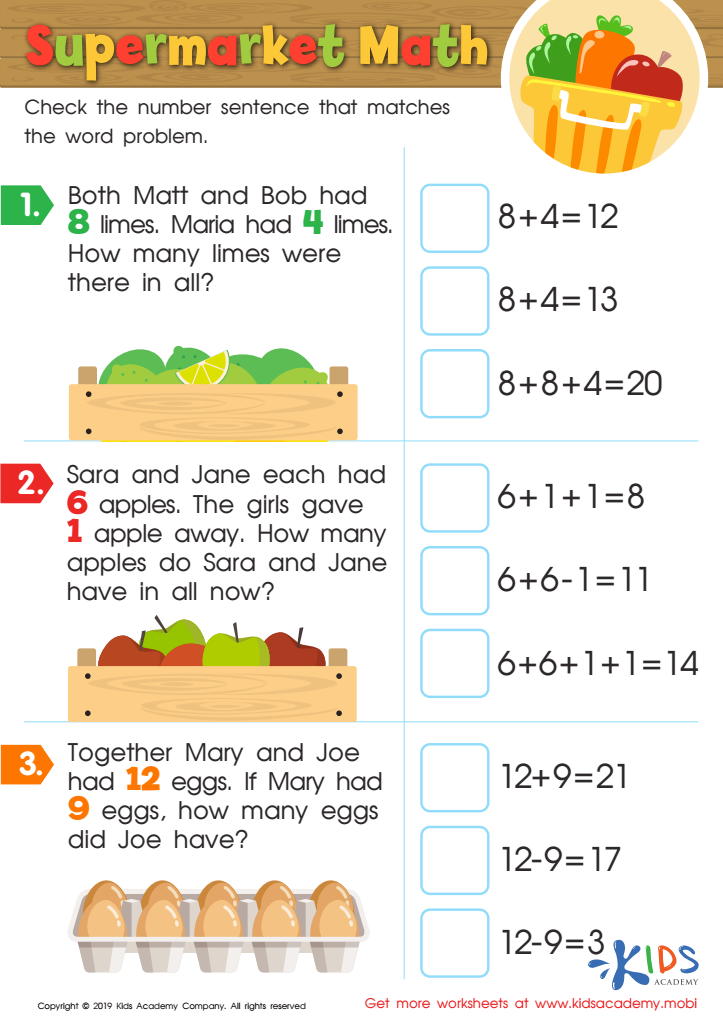

Supermarket Math Worksheet
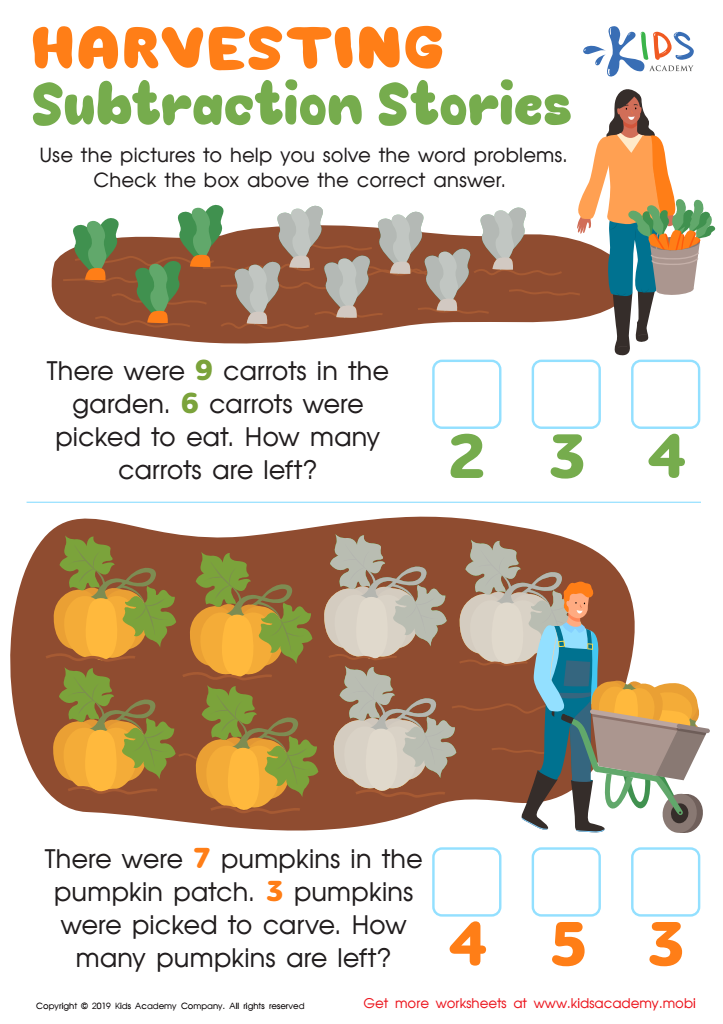

Harvesting Subtraction Stories Worksheet
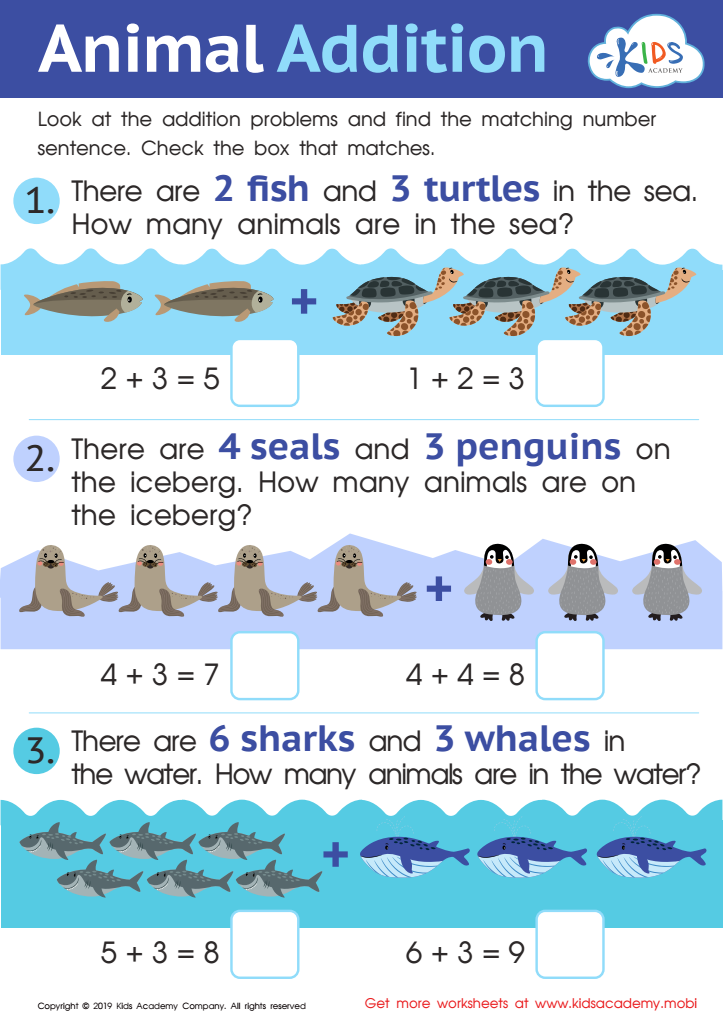

Animal Addition Worksheet
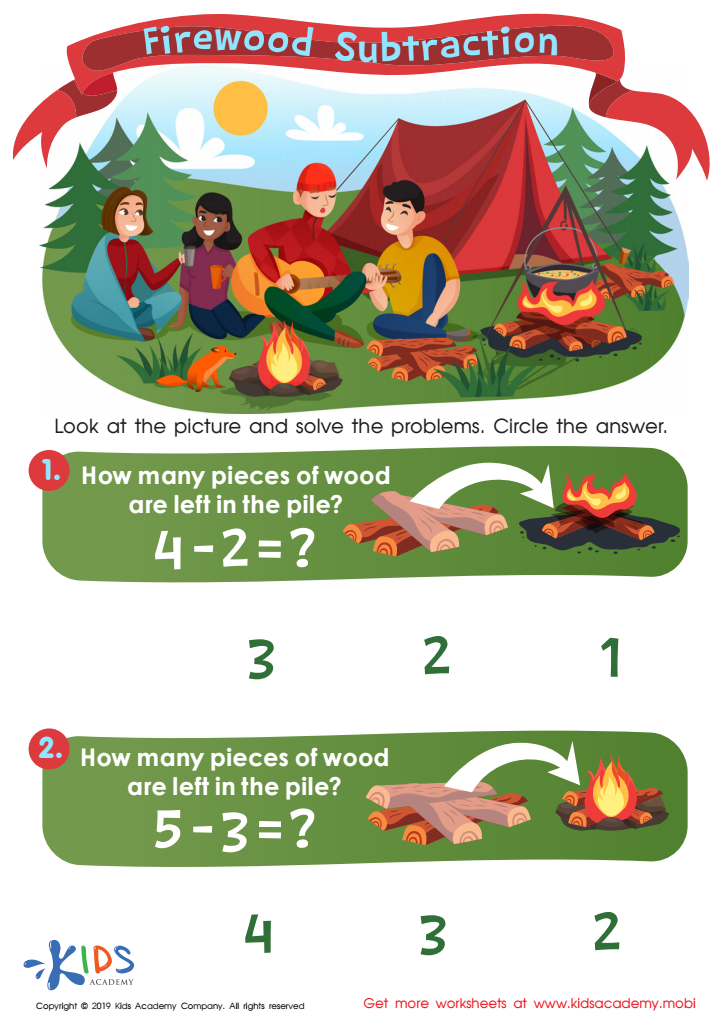

Firewood Subtraction Worksheet
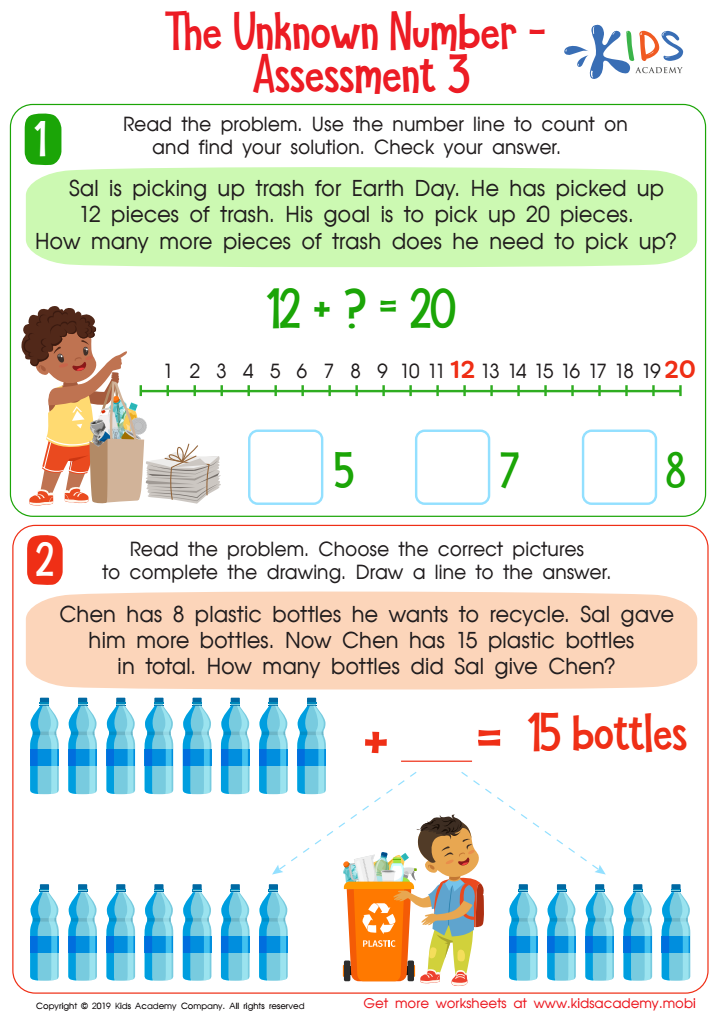

The Unknown Number - Assessment 3 Worksheet
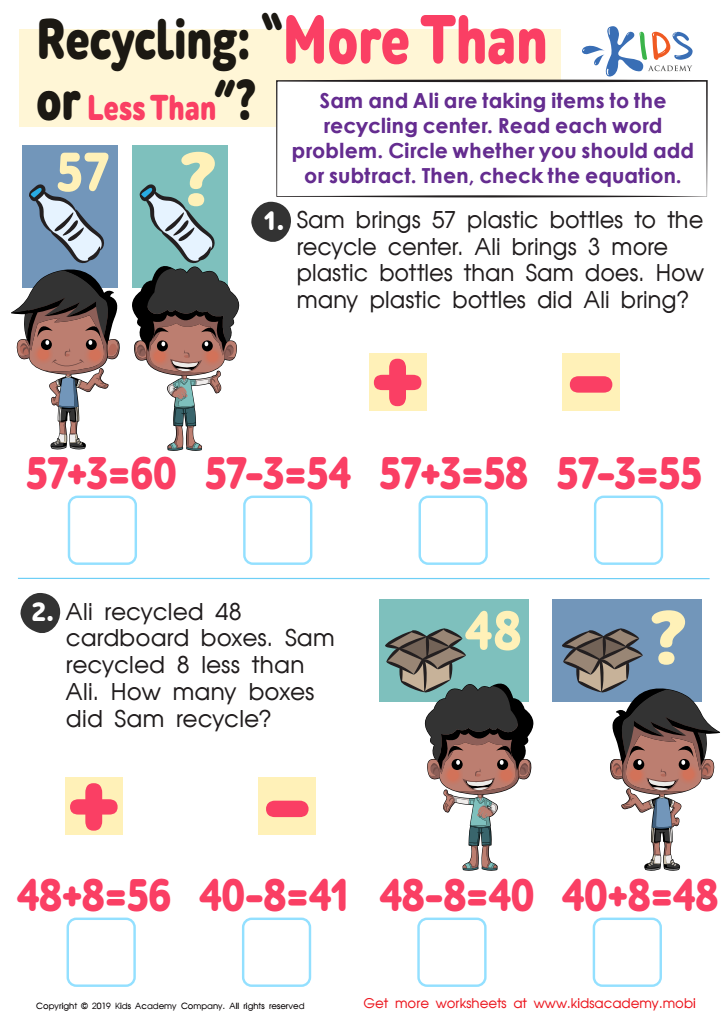

Recycling - More or Less Worksheet
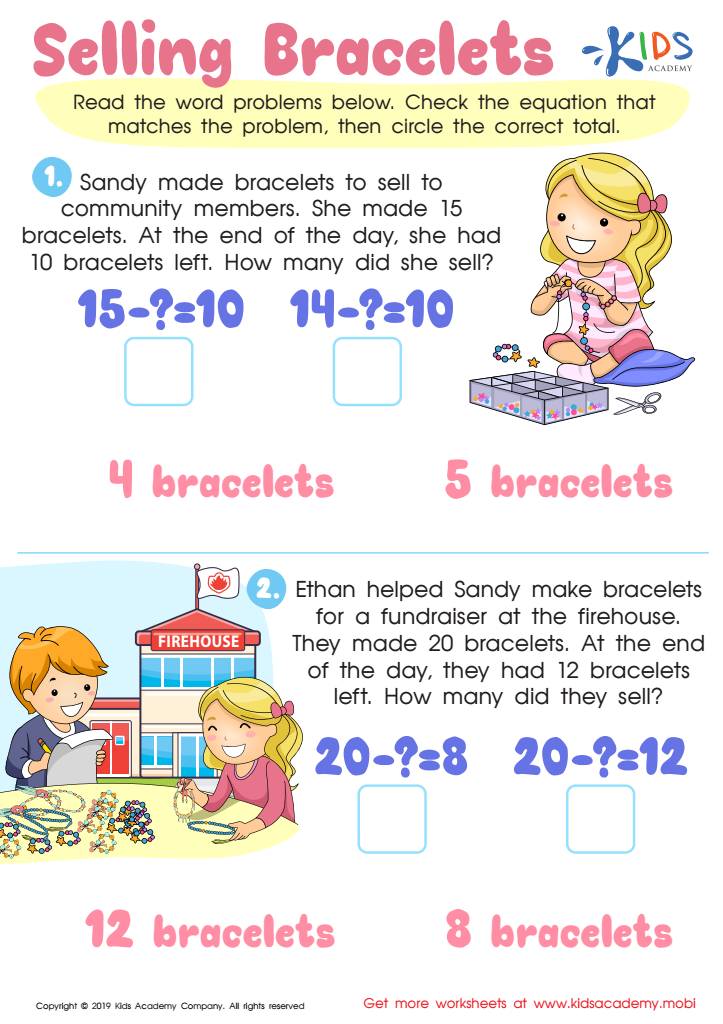

Selling the Bracelets Worksheet
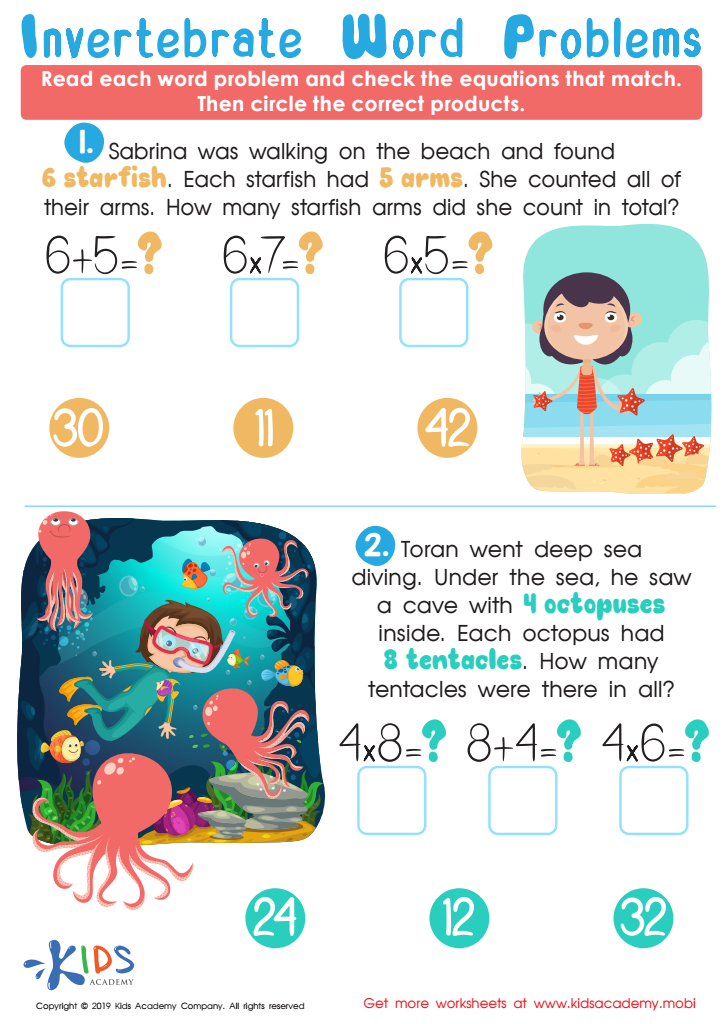

Invertebrate Problems Worksheet
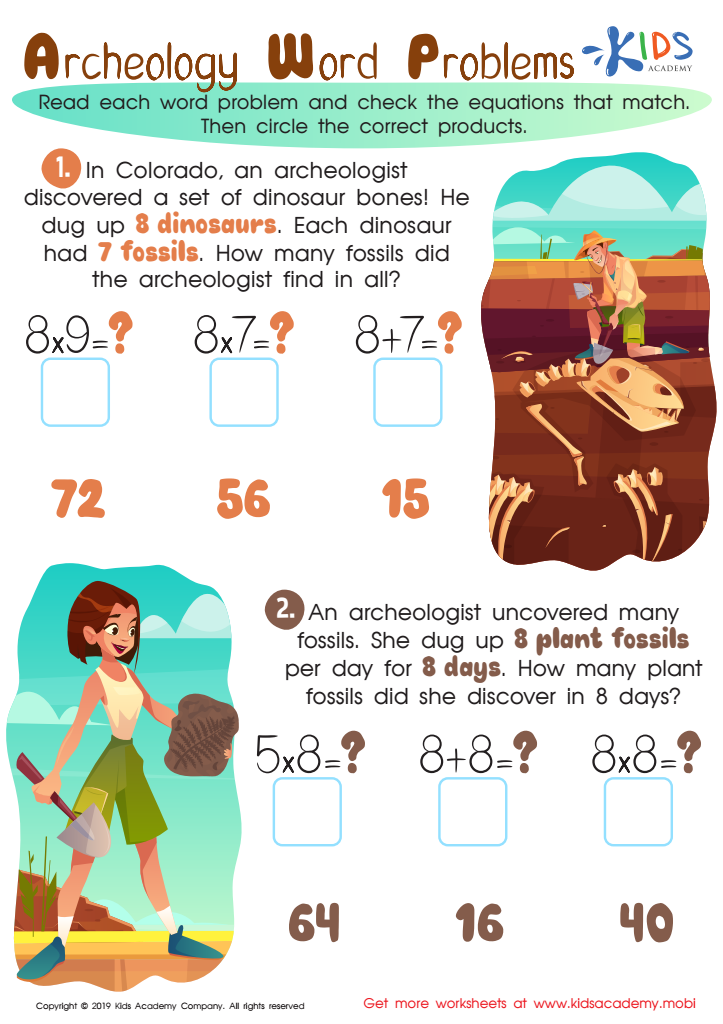

Archeology Word Problems Worksheet
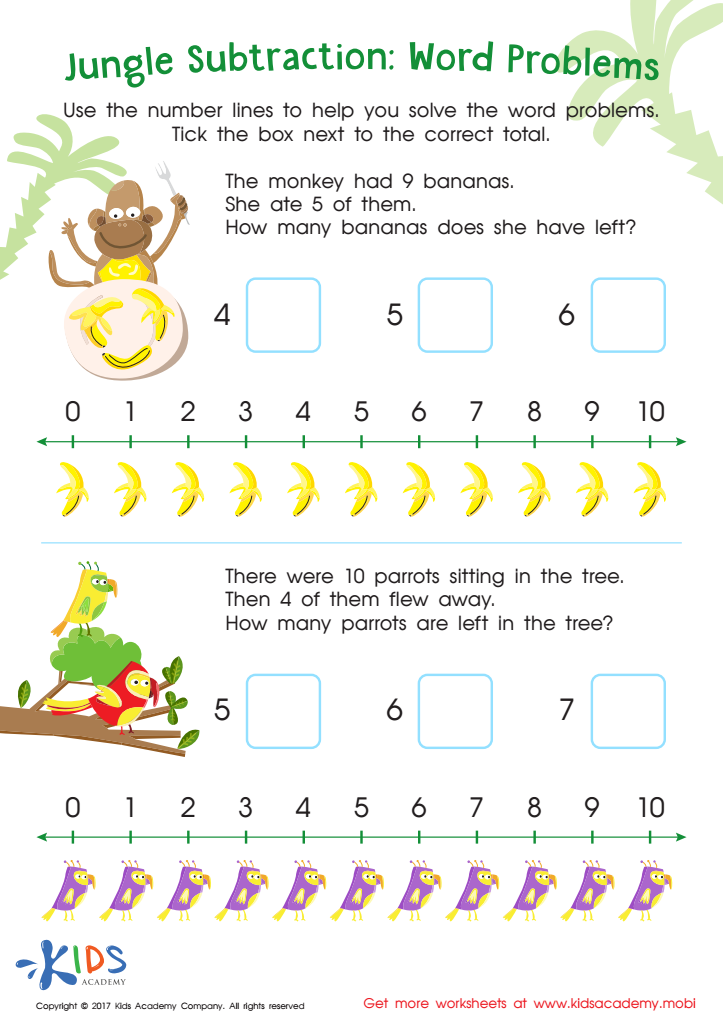

Jungle Subtraction Word Problems Substraction Worksheet
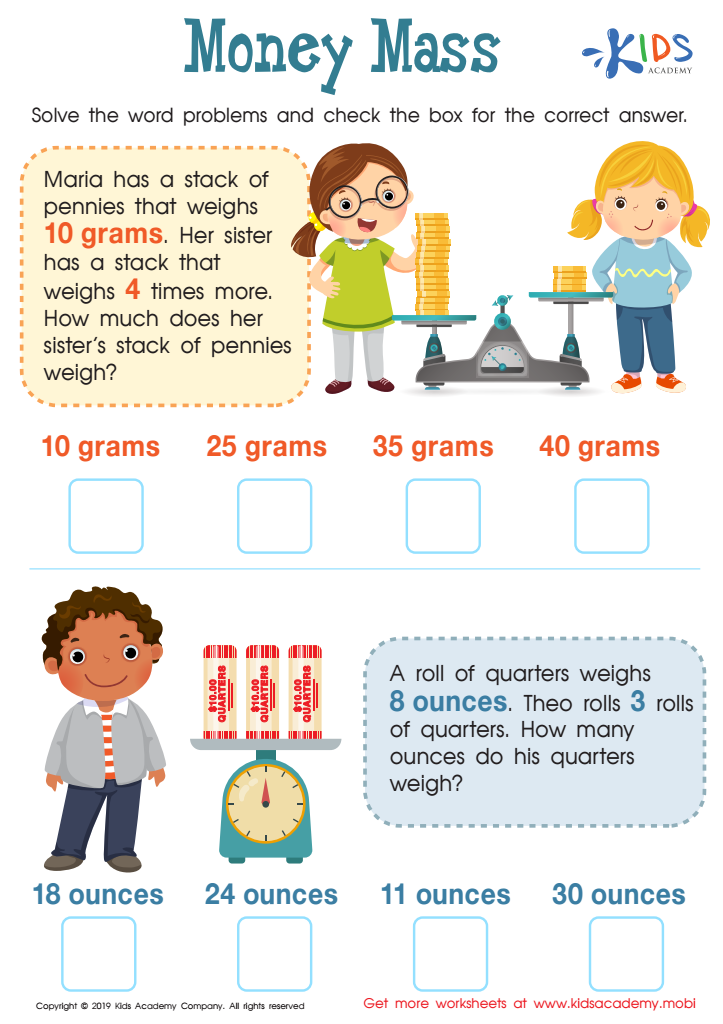

Money Mass Worksheet
The Importance of Learning Interactive Worksheets on Word Problems for Children Aged 3-5 Years
In the foundational years of 3 to 5, children experience rapid brain development which lays the groundwork for future cognitive, social, and emotional growth. During this critical phase, introducing learning interactive worksheets, especially those focused on word problems, can significantly enhance early learning experiences. These worksheets are not just tools; they are stepping stones that foster critical thinking, problem-solving skills, and intuitive learning in young learners.
Firstly, learning interactive worksheets tailored to word problems are specifically designed to align with the developmental abilities of young children. They typically incorporate basic scenarios that relate to everyday life, making it easier for children to connect with the content. For instance, a worksheet might pose a problem about sharing fruit among friends or counting the number of pets, which are relatable activities for a child in this age group. This relevance helps to spark their interest and keeps them engaged, promoting a fun learning environment.
Moreover, these worksheets encourage the development of mathematical thinking. For children aged 3-5, understanding the concept of numbers and their relationships is fundamental. Word problems help them apply these abstract concepts in concrete situations, thereby deepening their comprehension. By integrating storytelling elements with mathematical challenges, learning interactive worksheets make this process enjoyable and less intimidating for young minds.
Furthermore, learning interactive worksheets are designed to enhance language skills alongside numerical abilities. As children decode the information presented in the word problems, they also improve their reading comprehension and vocabulary. This dual focus not only makes learning more holistic but also ensures that children develop versatile educational skills from an early age.
Another key advantage of using interactive worksheets is the development of critical thinking skills. Children are naturally curious, and word problems feed this curiosity by posing questions that require thought and reasoning. As children ponder over different scenarios, they learn to think logically and creatively to arrive at solutions. This not only helps in academic pursuits but also equips them with the problem-solving skills they will need in everyday life.
Interactive elements such as pictures, puzzles, and touch-based activities further enhance the effectiveness of these worksheets. For young children, the tactile engagement provided by interactive worksheets helps in retaining attention and improving memory recall. It also makes learning a multi-sensory experience, which is crucial for young children who learn best through direct, hands-on activities.
Inclusion of supportive feedback mechanisms within these worksheets is another beneficial feature. Immediate feedback helps children understand mistakes and learn from them, fostering a growth mindset from an early age. This interactive feedback helps guide them through the learning process, allowing them to adjust their thinking, correct their errors, and reinforce their understanding in real-time. This responsive learning environment cultivates a sense of accomplishment and motivates children to continue exploring and learning.
Additionally, these interactive learning worksheets can be an excellent tool for parents and educators to gauge a child's developmental progress. By observing how the child approaches and solves word problems, caregivers can identify areas of strength and those needing improvement. This insight allows for tailored educational approaches, ensuring that each child receives the support they need to thrive.
Social skills development is another significant benefit derived from engaging with word problems in worksheets. Many of these problems are framed around scenarios involving other people or characters. As children work through these problems, they begin to understand perspectives and develop empathy. They learn the importance of sharing, fairness, and cooperation—vital social skills that are beneficial both inside and outside the classroom.
Lastly, the repetitive nature of word problems in learning interactive worksheets helps in reinforcing learning concepts. Through repeated exposure, children get better at recognizing patterns, understanding problem structures, and applying learned concepts to different situations. This repetition ensures that the foundational math and language skills are deeply embedded, providing a strong base for more advanced learning in the years to follow.
In conclusion, learning interactive worksheets focused on word problems are much more than just educational tools; they are catalysts for intellectual and emotional growth in young children. By blending math, language, and critical thinking skills with fun, engaging activities, these worksheets prepare children aged 3-5 not only for academic success but also for real-life challenges. Embracing such resources in early education lays down a solid foundation of lifelong learning and development.
 Assign to My Students
Assign to My Students















